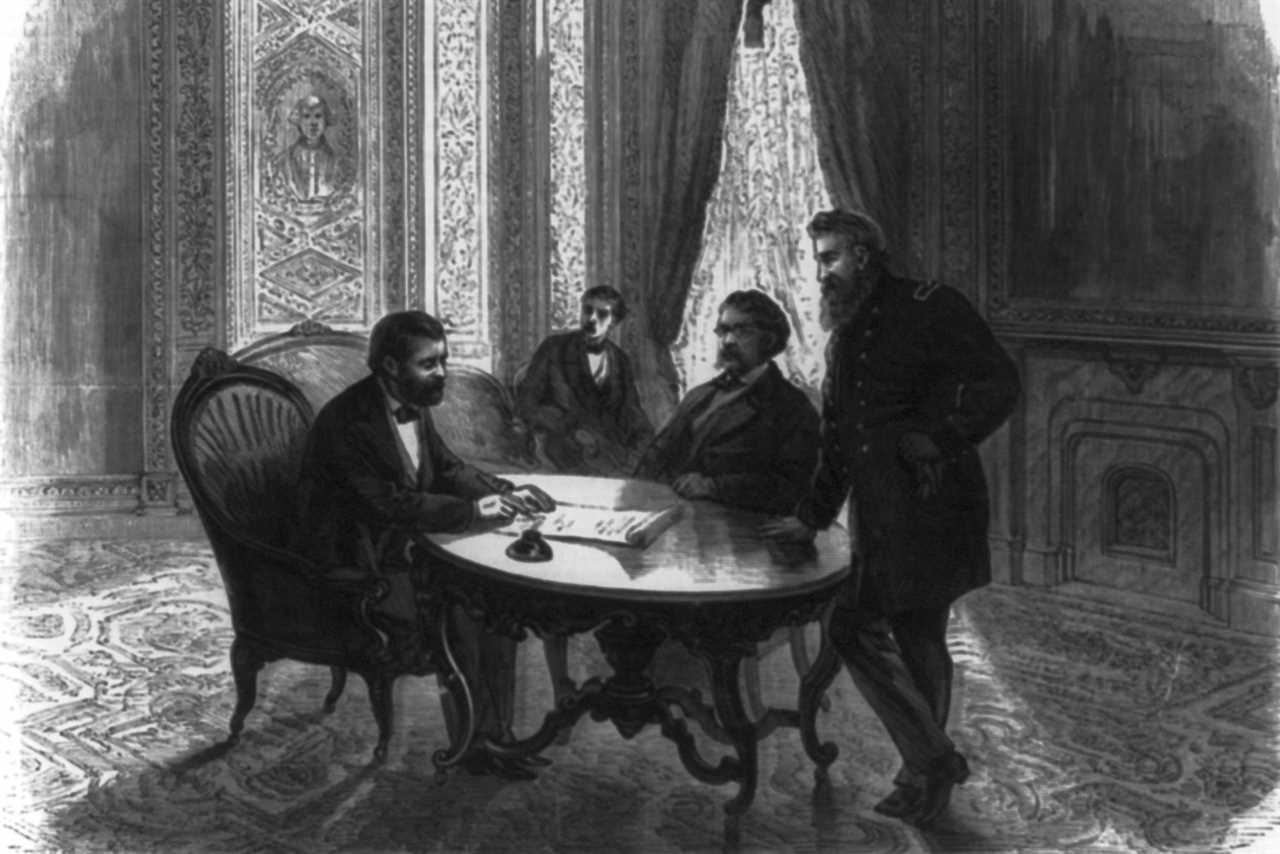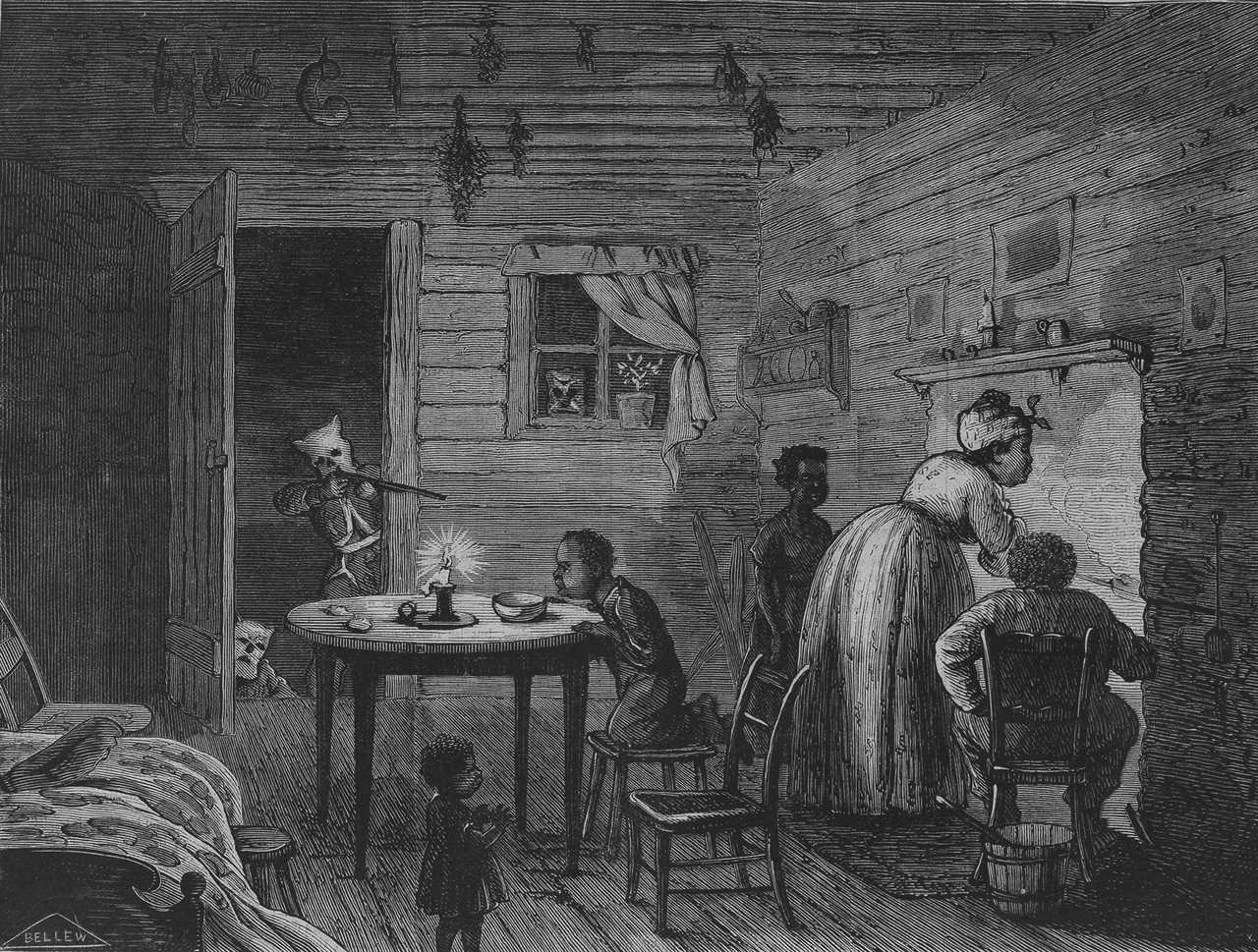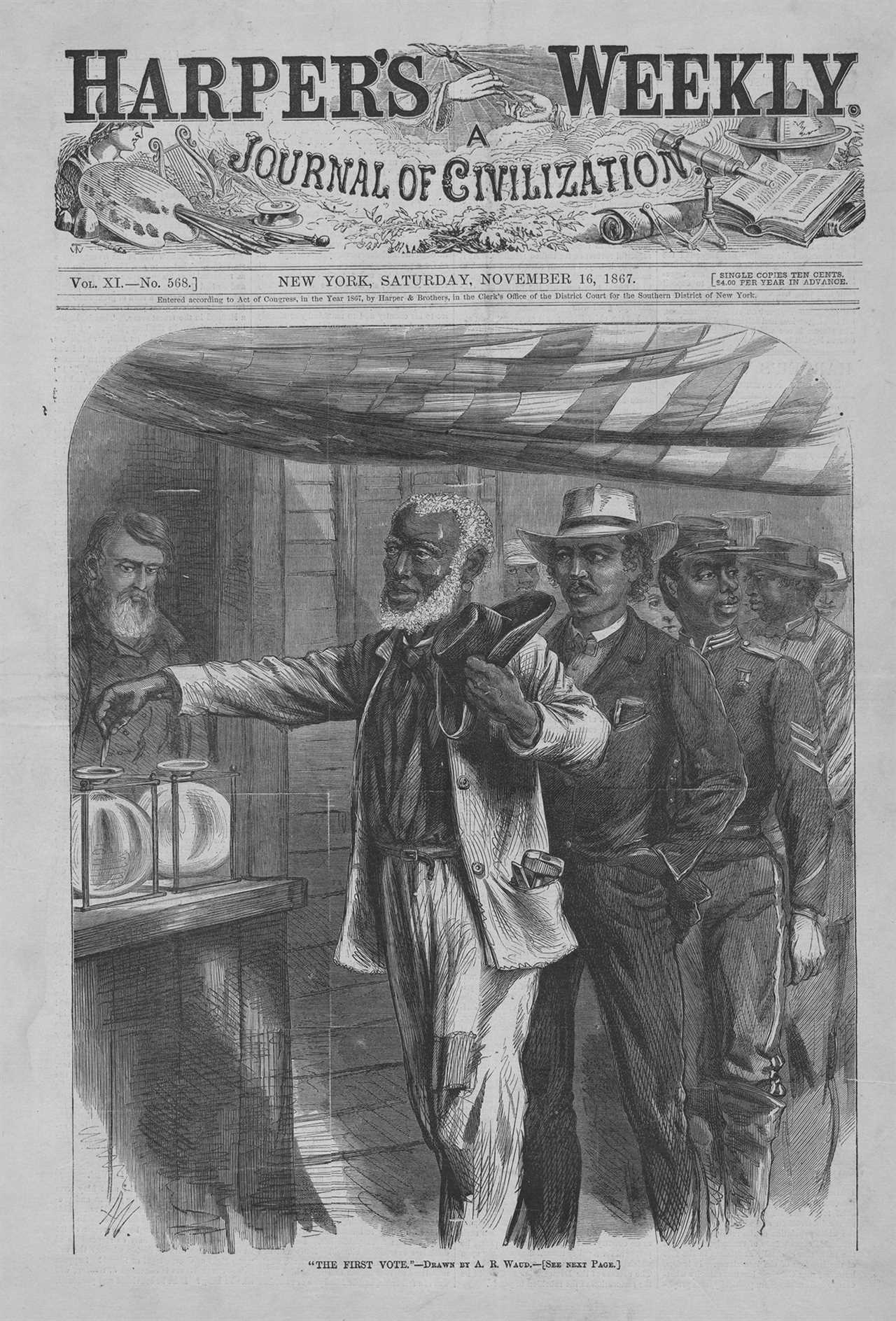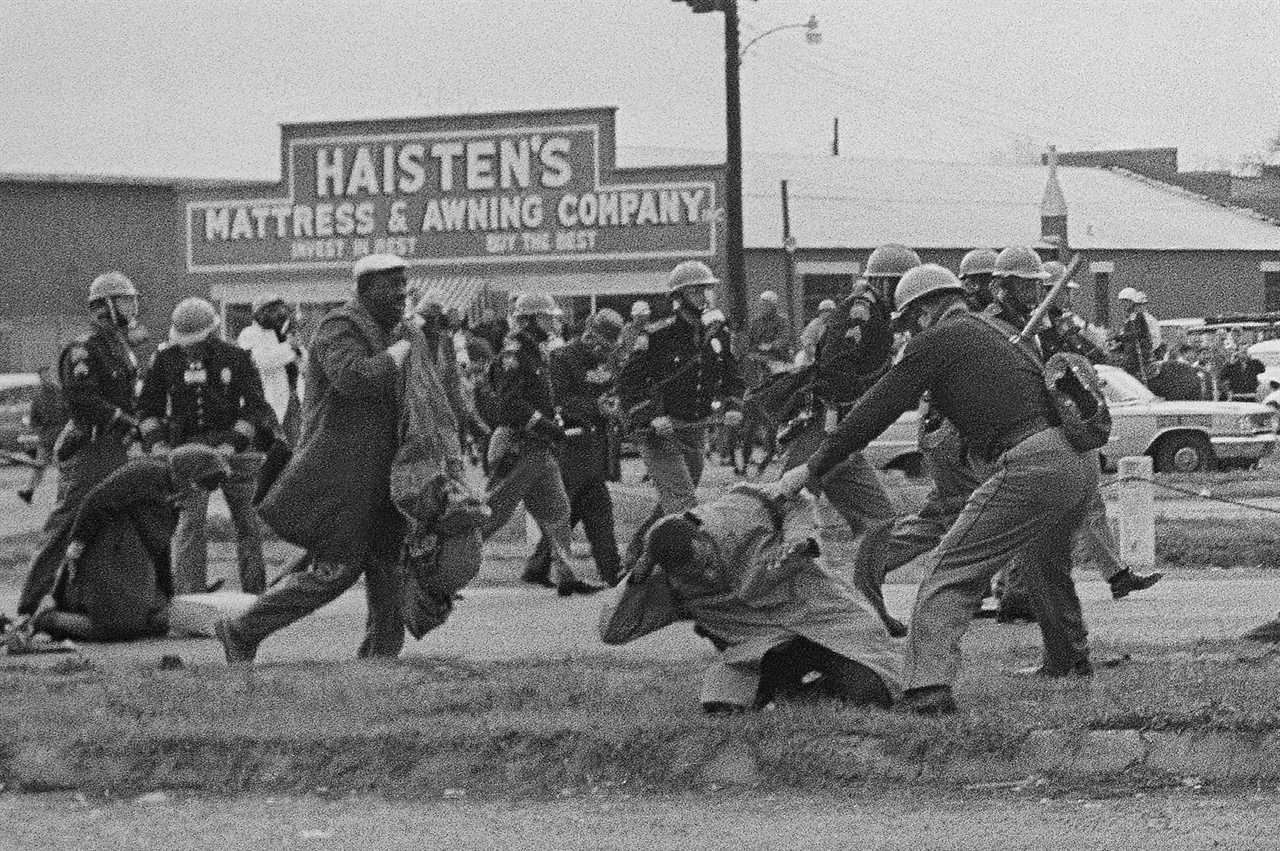
When a federal jury in Washington indicted former President Donald Trump this week for his role in attempting to overturn the results of the 2020 election, it did so in part on the basis of 18 U.S.C. § 241, a statute dating originally to 1870, when President Ulysses S. Grant signed into law the first of three Enforcement Acts, aimed at ensuring that formerly enslaved people could freely vote, participate in politics and serve in public office.
Conservatives took umbrage at the use of Section 241, a century-and-a-half old law, to prosecute Trump. “Smith is charging Trump with a civil-rights violation … based on a post-Civil War statute designed to punish violent intimidation and forcible attacks against blacks attempting to exercise their right to vote,” the National Review editorialized. “What Trump did, though reprehensible, bears no relation to what the statute covers.”
And yet, it does. The Enforcement Acts, one of which was known also as the Ku Klux Klan Act, given its prime target, criminalized widespread attempts by former Confederates to deny Black Southerners their right to vote, to have their votes counted and hold office — rights they enjoyed under the Reconstruction Act of 1867, the 14th Amendment and soon, the 15th Amendment. Coming at a time when American democracy teetered on the edge, these laws gave teeth to the federal government’s insistence that no eligible voter could be denied the right to vote and have his vote counted. (At the time, only men could exercise the franchise.) The laws were a direct response to Southern Democrats’ efforts to abrogate the practical effects of the Civil War and nullify Black political participation and representation.
Today, American democracy stands once again at a crossroads. The refusal of many Republican officeholders to accept the outcome of a free and fair election, and Trump’s outright appeal to fraud and violence in an effort to overturn that election, are precisely the kinds of antidemocratic practices the Enforcement Acts were intended to criminalize and punish.

In the aftermath of the Civil War, Republican majorities in Congress — first overruling the veto of President Andrew Johnson, then with the approval of President Grant — passed a series of measures intended to secure the Union victory in the Civil War. In the immediate aftermath of the war, Southern states passed a series of “Black Codes” that sharply restricted the rights of freedmen to free speech, assembly, firearm ownership, religious worship and employment freedom. In response, Congress passed the 1866 Civil Rights Act, codifying these rights at the federal level, and the 14th Amendment, establishing fundamental civil rights for all Americans. When the South overwhelmingly refused to ratify the new amendment, in 1867 Congress placed the former Confederacy under military rule and stipulated that states would need to pass new constitutions extending the franchise to Black men before they could be readmitted to the Union.
For a time, it seemed to work. Coalitions of Black men and white Republicans ratified new state constitutions extending the franchise to men regardless of race, and throughout the South, Republicans came to control a majority of state and federal offices. So-called Reconstruction state governments instituted a range of reforms, including expenditures on public education, sanitation, health and welfare and public infrastructure — programs that had been sorely lacking in the Old South.
But if they enjoyed working majorities in many places, Black and white Republicans still incurred the wrath of white Democrats, who employed a full range of tactics to “redeem” their states. In coordination with paramilitary groups including but not limited to the Ku Klux Klan, Democrats attempted to restore white-only rule through violence and fraud, and they effectively dared Republicans in Washington to do anything about it.
In Alamance County, North Carolina, the Klan and White Brotherhood initiated a wave of terrorism against Black and white Republicans, whipping prominent activists in their front yards for their families and neighbors to see, raping the wives of Republican Party loyalists and sexually mutilating men. In 1867, they dragged a prominent Black political leader away from his family and lynched him in front of the local courthouse, hanging a sign that read: “Beware you guilty black and white.” In neighboring Caswell County, they publicly murdered a Black politician, raped an unrelated Black woman and “afterwards stuck their knives into various parts of her body.”

Violence was one mechanism for seizing control of local or state governments. So was fraud or political trickery. When Democrats wrested control of the state Legislature in Georgia in 1868, they voted to oust all Black members, effectively creating for themselves a supermajority. They relied on the waning enthusiasm of Republican moderates in Washington for military occupation and federal control over local matters — moderates like Senator Lyman Trumbull, once a committed radical, but now reluctant to see the national government “usurp unauthorized power.”
Republicans on the ground in the South, including white Republicans like Senator Willard Warner of Alabama, lamented “a want of confidence, a lack of faith in the reconstruction of these states” on the part of national Republicans. Amos Akerman, a one-time Confederate officer who after the war became a Republican in both party and principle, observed that the Reconstruction amendments to the Constitution made the country “more national in theory” but worried that “even among Republicans, a hesitation to exercise the powers to redress wrongs in the states” would reverse the gains of the war.
But faced with increased violence, and with the prospect that white Democrats would soon not only wrest control of state governments, but also come to enjoy the same dominance over the federal government they held in the antebellum period, Congress passed the 1870 Enforcement Act. The new law cracked down on the Klan, to be sure (one provision made it illegal for more than two people to travel together while masked), but also made it a federal crime to “conspire to injure, oppress, threaten, or intimidate any person” to deprive people of their right to vote and have their votes counted. Its provisions covered everything from outright violence to more workaday crimes like bribery and ballot stuffing.
The Grant administration invoked the Enforcement Acts in a massive crackdown on the Klan. But by the mid-1870s, as the North effectively abandoned Reconstruction, the laws gathered dust, leaving white Democrats wide ground to impose Jim Crow rule throughout the South. The laws became a relic of a fleeting moment when the government in Washington seemed committed to a national standard for democratic self-governance. It would take another 100 years for the nation to finish the project of Reconstruction, and when it did, dormant laws and amendments dating from the 1860s helped provide the legal underpinning for this project of democratization.

In the days to come, Trumps’ defenders may claim that the 1870 Enforcement Act is antiquated and obsolete or, as the National Review argued, irrelevant to the case in hand.
In fact, as the Washington Post recently documented","link":{"target":"NEW","attributes":[],"url":"https://www.washingtonpost.com/politics/2023/08/01/trump-indictment-civil-rights-law/","_id":"00000189-bc65-d4df-a1ab-bc6dd5a70000","_type":"33ac701a-72c1-316a-a3a5-13918cf384df"},"_id":"00000189-bc65-d4df-a1ab-bc6dd5a70001","_type":"02ec1f82-5e56-3b8c-af6e-6fc7c8772266"}">Washington Post recently documented, while the act was precipitated by Klan violence in the 1860s, throughout the 20th century and even in more recent times, “Section 241 has also been used to prosecute a wider range of election subversion, including threatening or intimidating voters, impersonating voters, destroying ballots and preventing the official count of ballots.” That includes its use to prosecute white people who terrorized civil rights volunteers during the 1964 Freedom Summer in Mississippi and in cases involving election interference in states like Oklahoma, Tennessee and Kentucky. In other words, it is hardly what legal observers call a “strange law,” or a law still on the books but no longer relevant or enforceable.
Moreover, the acts of which Trump stands accused of committing are precisely what the Enforcement Act was intended to combat. Nullifying the votes of citizens. Fraudulently submitting fake elector slates. Attempting to intimidate state officials into falsifying returns. Bullying a vice president into discarding the official election count. And yes, inciting violence in the furtherance of overturning a free and fair election.
Our system presumes that a defendant is innocent until proven guilty. It is now incumbent upon the Department of Justice to make its case. But the shameful events of late 2020 and early 2021 only reinforce the lasting relevance and importance of the 1870 Enforcement Act, a law constructed to meet challenges that, a century and a half later, still hang over America’s fragile democracy.
----------------------------------------
By: Joshua Zeitz
Title: If Trump Gets Convicted, Blame Ulysses S. Grant
Sourced From: www.politico.com/news/magazine/2023/08/03/enforcement-acts-trump-00109622
Published Date: Thu, 03 Aug 2023 10:48:24 EST
Did you miss our previous article...
https://consumernewsnetwork.com/politics-us/sophie-grgoire-trudeaus-next-move-get-paid






